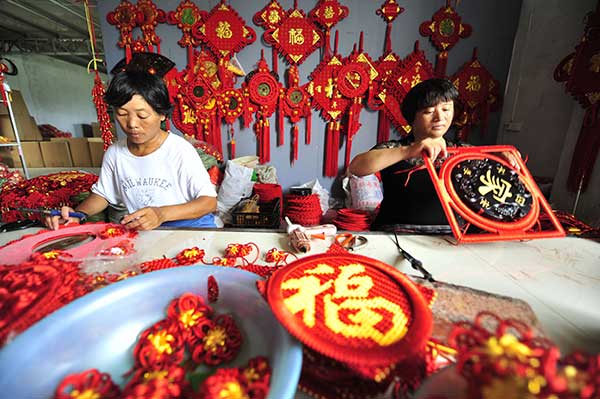 |
|
Two women make Chinese knots at the factory owned by entrepreneur Wang Chao at Honghua town in Linyi.[Photo by Lu Peng/Xinhua] |
"In the past, we sold our products to nearby commodities markets, but now we run our own businesses, which gives us freedom and more money," says Liu.
"All my family members, including my two sons, who have just graduated from university, are working for the online stores. Our buyers range from individuals to companies. We also design products for customers."
According to Wang Yanping, the head of Xuezhuang village, weaving willow is a traditional skill in the village with a nearly 300-year history.
Following Liu's success, nearly all the families in the village have learned how to combine their traditional skills and e-commerce.
The village, which has land measuring more than 1,100 mu (73 hectares) under willow cultivation, sold woven willow products worth more than 60 million yuan in 2015, earning it the title "Taobao village".
Slogans written on the village walls now say "Gold bowls and silver bowls can't beat willow bowls", replacing phrases promoting the family-planing policies.
In recent years, the country's urbanization has changed people's lives in rural areas. One of the biggest challenges that the rural areas have faced is that young people left for cities to make a living, which resulted in "empty nests" and "left-behind children".
Empty nests refer to the elderly, who live alone unaccompanied by any family as their children have grown up and left to pursue their own careers, while left-behind children are those left behind in rural areas under the care of relatives, mostly grandparents with little or no education, and family friends as their parents move to cities in search of work.
|
|
|
|
|
|
|
|
